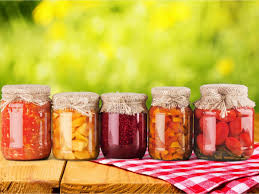
Breaking News
 From Inflation to Hyperinflation: The Gathering Monetary Hurricane
From Inflation to Hyperinflation: The Gathering Monetary Hurricane
 Deputy Attorney General Todd Blanche Fired Ed Martin as Chief of DOJ's Weaponization...
Deputy Attorney General Todd Blanche Fired Ed Martin as Chief of DOJ's Weaponization...
 Clintons Bend The Knee To Comer, Agree To Testify In House Epstein Inquiry
Clintons Bend The Knee To Comer, Agree To Testify In House Epstein Inquiry
 White House Ignores Congress -Hands More Weapons To Israelis & Saudis
White House Ignores Congress -Hands More Weapons To Israelis & Saudis
Top Tech News
 How underwater 3D printing could soon transform maritime construction
How underwater 3D printing could soon transform maritime construction
 Smart soldering iron packs a camera to show you what you're doing
Smart soldering iron packs a camera to show you what you're doing
 Look, no hands: Flying umbrella follows user through the rain
Look, no hands: Flying umbrella follows user through the rain
 Critical Linux Warning: 800,000 Devices Are EXPOSED
Critical Linux Warning: 800,000 Devices Are EXPOSED
 'Brave New World': IVF Company's Eugenics Tool Lets Couples Pick 'Best' Baby, Di
'Brave New World': IVF Company's Eugenics Tool Lets Couples Pick 'Best' Baby, Di
 The smartphone just fired a warning shot at the camera industry.
The smartphone just fired a warning shot at the camera industry.
 A revolutionary breakthrough in dental science is changing how we fight tooth decay
A revolutionary breakthrough in dental science is changing how we fight tooth decay
 Docan Energy "Panda": 32kWh for $2,530!
Docan Energy "Panda": 32kWh for $2,530!
 Rugged phone with multi-day battery life doubles as a 1080p projector
Rugged phone with multi-day battery life doubles as a 1080p projector
 4 Sisters Invent Electric Tractor with Mom and Dad and it's Selling in 5 Countries
4 Sisters Invent Electric Tractor with Mom and Dad and it's Selling in 5 Countries
Canning myths debunked: Amish methods for canning foods are good, while corporate...

Ever since World War II, American factories have been canning foods in factories in order to preserve the food for long periods of time, but there are serious tradeoffs for those processes, including adding preservatives and chemicals that leach into the food and cause long-term health detriment for consumers.
The dangers of canned foods include exposure to bisphenol A (BPA), a chemical in can linings that can leach into food — especially acidic items like tomatoes — posing risks like hormonal disruption. Additionally, canned foods often contain high sodium levels, contributing to hypertension, while processing may degrade nutrients. Concerns also exist about potential toxicity from aluminum or tin cans, with children, pregnant women, and those with health conditions being particularly vulnerable. Opting for fresh or frozen alternatives is recommended to minimize these risks.
With all that in mind, there are still ways to can foods that are safe and consumer friendly, meaning they don't cause all this health detriment, and the Amish have been doing it for decades.
Amish Canning Wisdom Debunks Modern Myths, Offers Timeless Food Preservation Tips
In an era of processed foods and reliance on industrial supply chains, the Amish community's time-tested canning methods offer a blueprint for safe, sustainable food preservation. For generations, the Amish have relied on simple, effective techniques to store everything from low-acid vegetables to meats — dispelling modern myths that deter beginners. As interest in self-sufficiency grows amid concerns over food security, their practices provide a vital lesson in balancing tradition with safety.
Debunking the Top 7 Myths
Myth 1: Low-Acid Foods Are Unsafe
Fear of botulism has led many to avoid canning vegetables, meats, and legumes. However, the Amish safely preserve these foods using pressure canning, which reaches temperatures high enough to kill harmful bacteria. "Pressure canning allows jars to reach temperatures above boiling point, effectively destroying harmful bacteria, including Clostridium botulinum spores," the article notes.
Myth 2: Expensive Equipment Is Necessary
While modern canning gadgets abound, the Amish rely on basic tools: sturdy pressure canners, mason jars, and simple utensils. Their approach proves that affordability and effectiveness go hand in hand.
Myth 3: Canning Is Too Complicated
The Amish treat canning as an essential life skill, taught early and practiced routinely. Beginners can start with simple recipes like jams or pickles, emphasizing cleanliness and patience.



